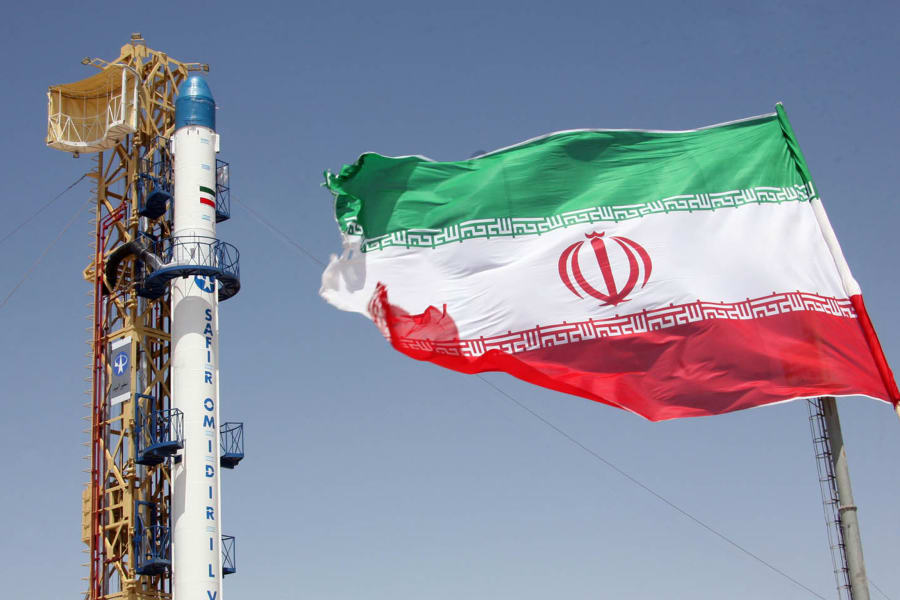Tehran reports first satellite rocket launch since war with Israel

The Iranian regime has conducted a satellite rocket launch test for the first time since last month’s war with Israel, the Iranian semi-official news agency Tasnim reported on Monday. The missile test reportedly involved its Qased satellite vehicle, a three-stage system. The Islamic Revolutionary Guard Corps (IRGC) developed the satellite system, which flew the first time in 2020. Yet, the news agency claimed that the purpose of the test was to assess “new technologies” developed by Tehran’s indigenous space companies.
Tehran’s space and missile programs have long been viewed as a threat by both Western and Middle Eastern nations. Israel and Western governments see Iran’s latest test as a cover for advancing its ballistic missile capabilities. While Iranian missiles can already reach much of the Middle East and parts of Europe, there are growing concerns that Tehran aims to develop intercontinental ballistic missiles capable of one day threatening cities like New York and Washington, D.C.
Israel announced last month that the purpose of its Operation Rising Lion was to neutralize Iran’s nuclear and missile assets. The Iranian ayatollah regime openly calls for the Jewish state’s destruction.
In addition to seeking to develop nuclear weapons, Israeli leaders warned that the Iranian regime had plans to triple its arsenal of ballistic missiles, which would seriously threaten Israel’s existence.
“The operation was initiated following a buildup of unequivocal intelligence indicating that the Iranian regime planned to triple its missile arsenal within two years,” IDF Spokesman Brig.-Gen. Effie Defrin stated last month.
Israeli intelligence estimated that Iran possessed some 2,500 ballistic missiles prior to the recent Israeli military offensive. Tehran reportedly fired some 500 missiles at Israel and the Israeli Air Force neutralized some 1,000 missiles on the ground. Israel therefore believes that Tehran still maintains some 50% of its prewar missile stock. The Israeli Air Force reportedly also succeeded in eliminating over half of Iran’s missile launchers. While Iran suffered massive military losses, Tehran insists that it still maintains significant missile launch capabilities.
Israel appears to concur with the Iranian regime’s official position concerning its missile capabilities. Earlier this month, Israel’s Defense Minister Israel Katz assessed that Iran’s nuclear program was “mortally wounded” in the U.S. and Israeli aerial strikes on Iran’s main nuclear facilities Fordo, Natanz and Isfahan. Katz further argued that Israel had dramatically degraded Iran’s missile capabilities. However, he warned that the Iranian missile threat was still not fully removed.
Iran, which has limited and outdated conventional military capabilities, has instead focused on its covert nuclear military program, its missile and drone program and building terrorist proxies across the Middle East. The Wall Street Journal recently reported that Tehran is currently seeking to rearm its severely degraded proxies with a specific focus on Hezbollah in Lebanon and the Houthis in Yemen.
"The timing and scale of this shipment strongly suggest Iran is moving quickly to replenish Houthi stockpiles depleted by US airstrikes," assessed Mohammed al-Basha, the founder of the Basha Report, a US-based Middle East security advisory. It appears that Iran has more or less given up on rearming the increasingly weakened and isolated Hamas in Gaza.
Meanwhile, the European E3 power Germany, France and the UK announced that new nuclear talks will be held with Iran in the near future.
“The E3 are in contact with Iran to schedule further talks for the coming week,” a German diplomatic source announced.

The All Israel News Staff is a team of journalists in Israel.
You might also like to read this:
















